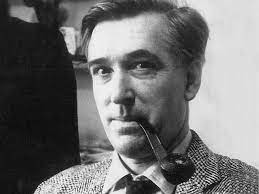Your Subconscious is Holding You Back
How is it possible to tell if we are correct or not, especially when we are thinking about the topics from our own perspective? Is it possible for humans to think about topics without bias? One phenomenon where humans seek out facts to support their own beliefs and ignore any contradicting evidence is called
confirmation bias. Confirmation bias is the idea that one only looks at evidence that supports their preformed beliefs and subconsciously dismisses anything that goes against that belief.A study was performed in 1960 by the psychologist Peter Wason to observe the internal and subconscious bias that humans have and if that causes them to ignore conflicting information to their predetermined ideals. The participants were given the number sequence of “2-4-6” and told to form a hypothesis, which was “a sequence of even numbers”. The psychologists then had the participants present their own number sequences. They came up with ones such as “4-8-10”, “6-8-12”, and “20-22-24” until the test subjects felt confident in their hypothesis that the rule to the number sequences could only be “a sequence of even numbers”. However, this was not the rule, instead it was “a sequence of increasing numbers”.
Further results from this study included that the participants only created hypotheses that confirmed their predetermined thoughts, not any hypothesis that would disprove or contradict their thinking. This was the first time psychologists were able to get concrete evidence to prove the theory of confirmation bias, however, Wason manipulated this evidence to highlight the bad news.
Yes, Wason only displayed the evidence in his paper that aligned with what he wanted to say on cognitive biases.
Ironic, isn’t it?
When psychologists reviewed Wason’s data later on, they saw that he noted that several participants correctly guessed the rule after the first number sequence and other participants created sequences after the first one that didn’t fit into their own created rule. In short, the participants did not exude as much confirmation bias as Wason led readers to believe in his paper.
Other studies had similar findings as Wason’s original findings, not what he showcased in his paper. For example there was a study performed in 1990 by psychologist Ziva Kunda whose participants stated the same ideals as the participants from thirty years earlier. Many looked outside of their own thought processes to solve whatever puzzle was presented in front of them and did not display a vast amount of bias.
So why does confirmation bias get such a bad wrap, if the studies provide evidence that people are not as biased as one may think?
There is one major factor in the studies that upon reflection, may explain why the majority of the participants in the studies didn't exude confirmation bias; context.
It's believed that when context is provided, confirmation bias tends to fade away. This could be because
people are forced to think about things more critically and topics become more well-rounded when all sides are being supported with data. In our day-to-day lives, we typically don’t find that much well-rounded context to current events without deep-searching on our part. It’s hard to measure confirmation bias when dealing with political events since there's no psychologist telling us that we are wrong, that there is another solution to the problem. The study conducted by Wason doesn’t accurately replicate the environment people find themselves in when dealing with political, social, or economical issues, especially with the development of social media. When conducting his study in 1960, there is no way that Wason would have been able to predict the world-altering types of technology that we have today and how that technology makes it so much more difficult to get full context on complex world issues.Don't get trapped in your echo chamber.







No comments:
Post a Comment